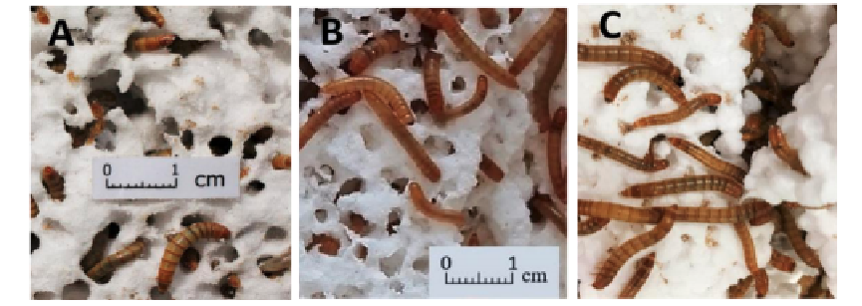Project Description
Polystyrene is a persistent, non-biodegradable plastic that is accumulating at alarming rates on land and in rivers, lakes and oceans globally. The University of Western Australia with support from Woodside Energy Ltd is taking steps towards developing insect
technology that will convert polystyrene waste into high value, sustainable protein products such as fertilisers and soil improvers. Preliminary studies suggest that Tenebrio molitor (yellow mealworms) are capable of degrading polystyrene via enzymatic
processes in the larval gut. Additionally, there are other insect species that are known to readily digest other plastic types. However there is very little information on how this occurs, the efficacy of the process, and how this might be optimised to develop
plastic-degrading technology.
This prototype comprised a literature review to investigate the efficacy of using mealworms to biodegrade polystyrene (PS) products which account for 7.1% of global plastic production. The larvae of Tenebrio molitor mealworms are able to digest and metabolize PS into mealworm biomass, and emit CO2, and smaller molecular weight products in the worm feculae. Mealworms degraded ingested PS in their gut up to 40-50% within the relatively short 12-15 hrs gut retention time. Further studies with antibiotics have suggested that the PS biodegradation is likely gut microbe-dependent. To date, however, no microorganisms isolated, including strain YT2 isolated from the mealworm gut, can degrade PS at the same rate as the mealworms. More research is needed to understand the mechanisms of the PS biodegradation in mealworm gut and interactions between the mealworm host and gut microbes.

